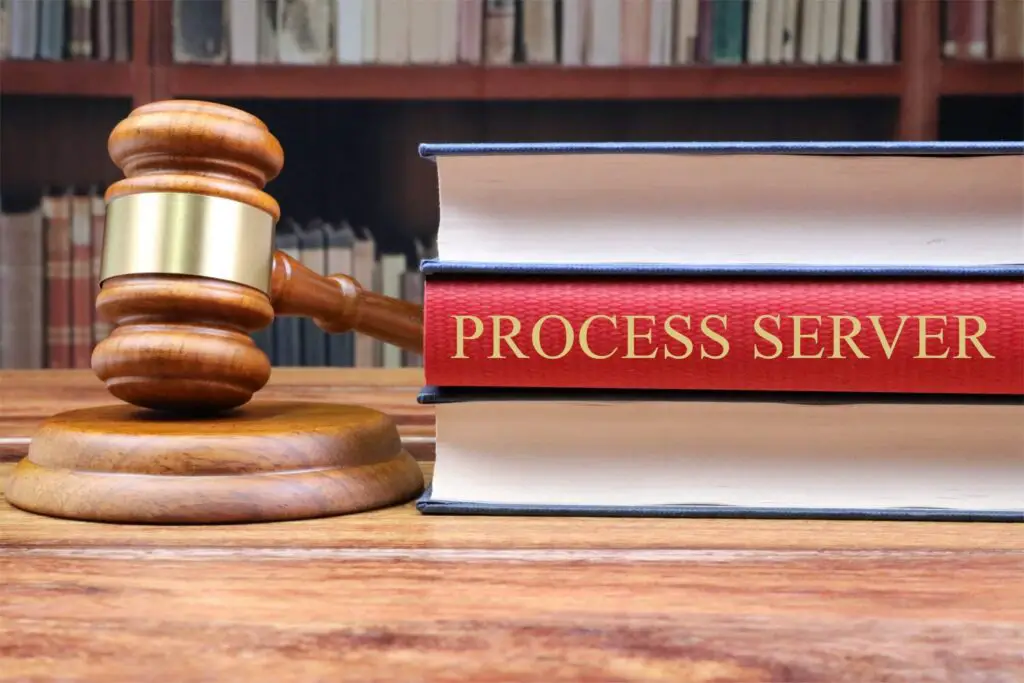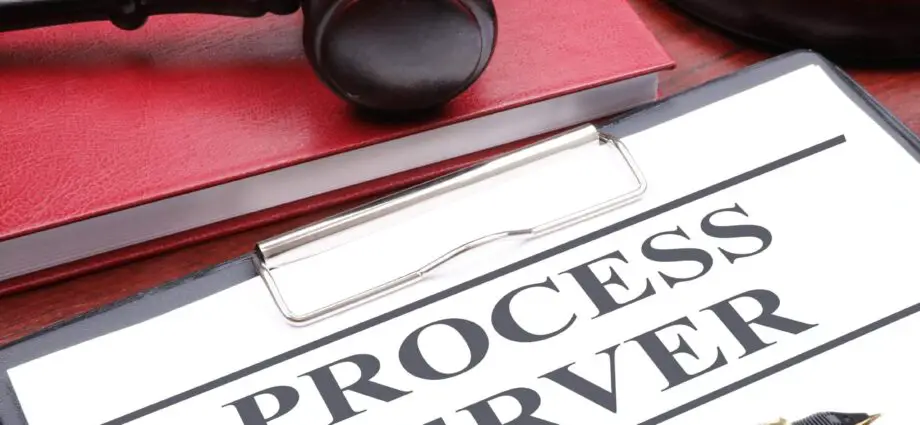It doesn’t matter whether you need service of process in Texas or California. When involved in legal procedures and lawsuits, you will have to hire a process server from a third-party business.
Process servers are individuals who deliver legal documents and notices to the involved parties.
Typically, any person above 18 can do the service of process. It may be a friend, relative, or even you. However, it is suggestible to opt for professional process servers who possess court authorization.
But, do not hire any service within reach. It is a crucial decision, and your lawsuit’s success depends on it.
Well, if you’re a novice in the world of law, then all of this must be confusing. There’s no need to worry, as we have compiled all the fundamentals about process servers below. Read more to resolve your queries!
Who is a Process Server?
Process Server is a formal title of an individual who performs the service of the process. It is the delivery of legal documents, along with the court hearing notices, to the parties involved in the lawsuit.
Once the delivery is successful, a process server must provide the evidence of served documents. The server must fill and submit an affidavit of service. In case you’re using a professional process server agency, the affidavit may need to get notarized.
Now, various places have varying process serving policies. There can be different laws depending on your state of residence. So, the process server must remain updated with these policies to avoid breaking them.
For example, in California, a process server who serves 10+ legal documents to people must get himself registered. A person may register individually or as a business.
However, while registration is mandatory for all, there are a few exceptions. Law enforcement officers, attorneys, and anyone appointed by the court do not require registration.
Process Server & The Legal System

The legal system allows a process server to serve the documents to the recipient in any form possible. Ideally, the process server will go to the receipt’s residence and deliver.
Sometimes, the service of the process is not successful. It can be due to a variety of reasons, such as:
- The receipt may not be at home.
- Misunderstanding in address and location.
- Dodging and evasive behavior of the recipient.
In any of these cases, a process server will attempt to deliver the documents a limited number of times. He may leave the documents with any 18+ individual at your residence. Or, he may leave the papers at the doorstep or attached to the front door.
When a receipt is being evasive, a process server has the liberty to complete the service of the process in different ways. The server may deliver papers through email or mailbox. They may also track you and conduct the service in a public place.
At times, the recipient still manages to dodge receiving the notice even after several attempts. In these cases, the legal system allows the other party to sue the recipient and the lawsuit to continue.
Duties of a Process Server
Process servers are valuable assets to the legal procedures. They make the entire lawsuit smooth, convenient, and easy to follow.
Fundamentally, a process server must ensure all the required paperwork is complete, delivered, and filed timely. The process server keeps both parties informed about legal proceedings and court hearings. Hence, also acting as a reminder.
Apart from this, a process server may perform these duties:
- Court Filing & E-filing
Submission of legal paperwork is court filing. A process server can help you with legal case papers submission. So, you can receive a trial date. E-filing is the electronic submission of the papers. - Notary Public
A person authorized by the secretary of state to certify signatures on documents is a notary public. Process servers can act as a neutral third party on the state’s behalf. It ensures all the signatures get collected legally. - Skip tracing
Process servers can also provide skip-tracing services. It involves locating individuals who dodge accepting the service of process and deliver them the documents.
Why should you hire a process server?
Now, we have understood the fundamentals. Let’s discuss the reasons you should be opting for a professional process server. These include:
- Authorized and experienced process servers ensure the best service of the process. They possess deep knowledge and understanding of ways to ensure documentation delivery. Hence, it helps speed up and smoothen your lawsuit.
- These process server agencies also help conserve your valuable time and finances. You do not have to wait long and can prevent potential issues.
- Professional process servers also include private investigators who can track down evasive recipients easily. Thus, they ensure high document delivery success rates. Comparatively, you or your friend acting as a process server might not know how to do that.




